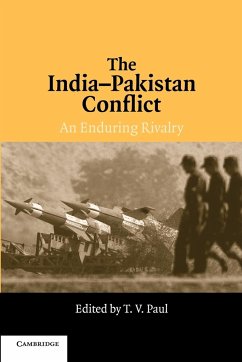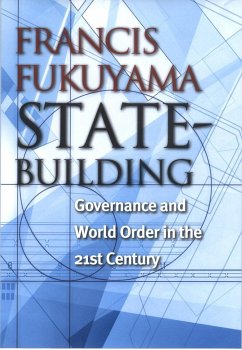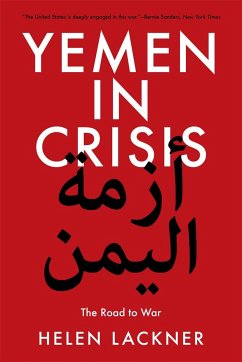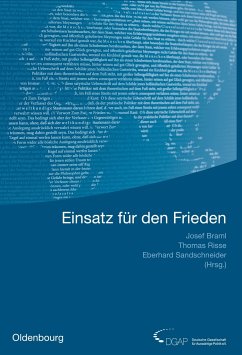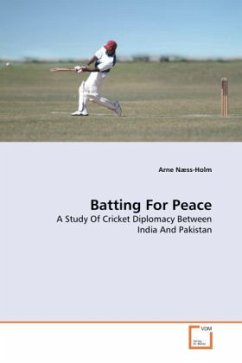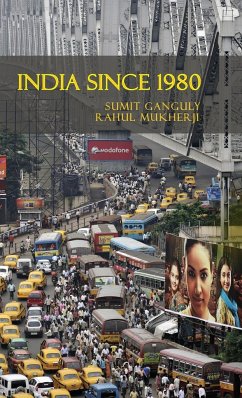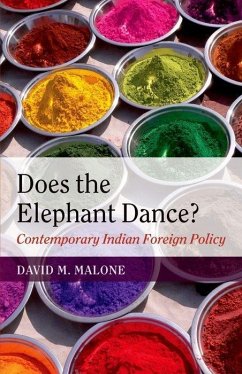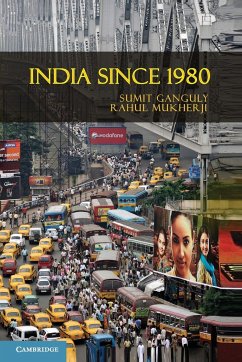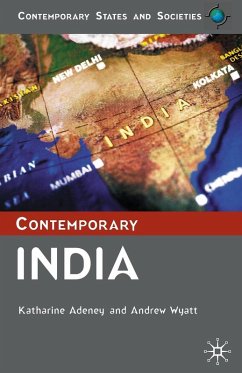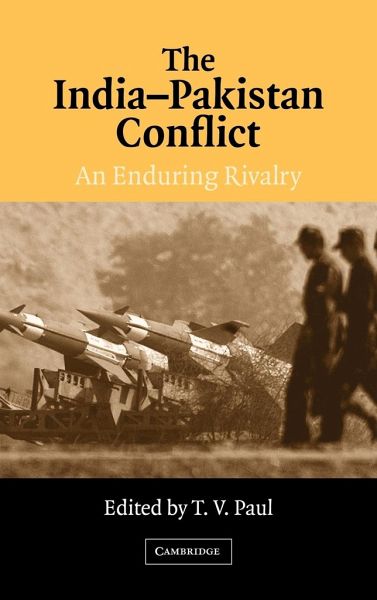
The India-Pakistan Conflict
An Enduring Rivalry
Herausgeber: Paul, T. V.
Versandkostenfrei!
Versandfertig in 1-2 Wochen
102,99 €
inkl. MwSt.
Weitere Ausgaben:

PAYBACK Punkte
51 °P sammeln!
The India-Pakistan rivalry remains one of the most enduring and unresolved conflicts of our times. It began with the birth of the two states in 1947, and it has continued ever since, with the periodic resumption of wars and crises. The conflict has affected every dimension of interstate and societal relations between the two countries and, despite occasional peace initiatives, shows no signs of abating. This volume, first published in 2005, brings together leading experts in international relations theory and comparative politics to explain the persistence of this rivalry. Together they examin...
The India-Pakistan rivalry remains one of the most enduring and unresolved conflicts of our times. It began with the birth of the two states in 1947, and it has continued ever since, with the periodic resumption of wars and crises. The conflict has affected every dimension of interstate and societal relations between the two countries and, despite occasional peace initiatives, shows no signs of abating. This volume, first published in 2005, brings together leading experts in international relations theory and comparative politics to explain the persistence of this rivalry. Together they examine a range of topics including regional power distribution, great power politics, territorial divisions, the nuclear weapons factor, and incompatible national identities. Based on their analyses, they offer possible conditions under which the rivalry could be terminated. The book will be of interest to scholars of politics and international relations, as well as those concerned about stability and peace in South Asia.





